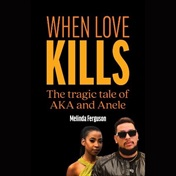
The film Vaya is now also a book, giving voice and context to homelessness in the city, writes Gayle Edmunds.
Vaya: Untold Stories of Johannesburg
Authors: Tshabalira Lebakeng, David Majoka, Anthony Mafela, Madoda Ntuli, Harriet Perlman and Sarah Charlton, with photographs by Mark Lewis
Cost: R300
Home. A place to call home. This book will forever alter the way you see the people who live on the margins in Johannesburg, and your concept of home.
The book, and the movie of the same name it complements, is the product of an initiative started in 2009, The Homeless Writers Project.
The programme offers people a space to tell their stories of living and surviving on the streets of the city. Those stories were workshopped into the film, and the making of the film brought about the book.
Four of the co-authors of Vaya – David Majoka, Madoda Ntuli, Anthony Mafela and Tshabalira Lebakeng – share their experiences of coming to the city in search of those fabled jobs and opportunities. What each of them find is an existence they didn’t expect. Each man has a different story of homelessness, but each triumphs over his circumstances in unexpected and varied ways.
The stories of the four main protagonists are interspersed with essays by experts, such as Peter Delius and Sarah Charlton, that offer context for why the city is the way it is, how the lopsided infrastructure development justified by racist laws still rule the way many people on the margins of society experience the city. In her essay, Understanding Homelessness, Charlton explains the nuances of homelessness, showing up the ignorance of those who assume those who “sleep rough” have some addiction or character flaw.
“In Johannesburg, there is an extreme shortage of affordable accommodation. More than 560 000 people are unemployed in the city and a further 105 000 have given up looking for work. If you are not working and don’t have a regular income, it’s almost impossible to find a permanent, decent and secure place to live in the central part of town.”
What makes this book so easy to engage with is that it is beautifully designed to allow the reader to dip in and out. Interspersed with Mark Lewis’ vivid images, it is edited for quick reads (though I admit I couldn’t put it down and read it in one sitting).
You can read the story of how Majoka won a course at the AAA School of Advertising, which brought him to the city, or how Lebakeng was forced to work like a slave for an aunt for a place to live, or to read Ntuli’s description of Park Station, where he gets his dinner and where many make their home. Though designed as a journey for the readers, it is just as easy to flick through and read what catches your eye, then work forward and backward.
The book does delve into the stories of women on the streets, though with too little detail. The Homeless Writers Project founder Robbie Thorpe says that the experiences of women on the street are different, and that although women did attend some sessions they didn’t stay. And so the women’s stories are not as present as those of the four main storytellers. This is part of the greater story of homelessness that’s missing. The book needs more of a balance of voices, with women telling their own stories as boldly as the men do.
The book closes with a call to action. It gives readers the tools to become advocates for people’s housing rights, and I think the authors hope that progressive teachers will use the book to host discussions in their classrooms and lecture halls.
Vaya, the film, is currently showing. See #Trending for a review




 Publications
Publications
 Partners
Partners















